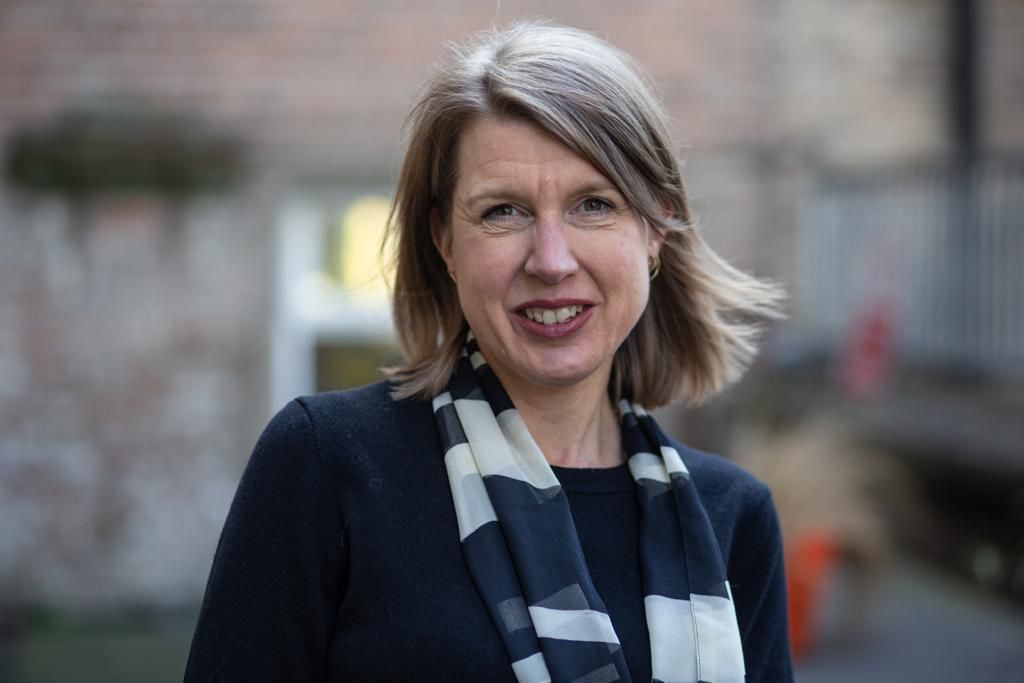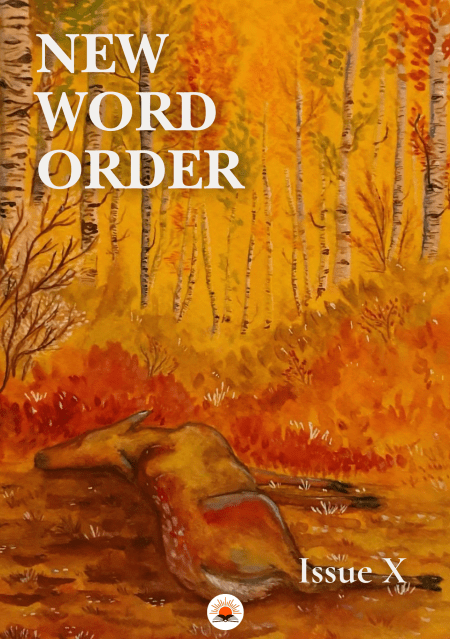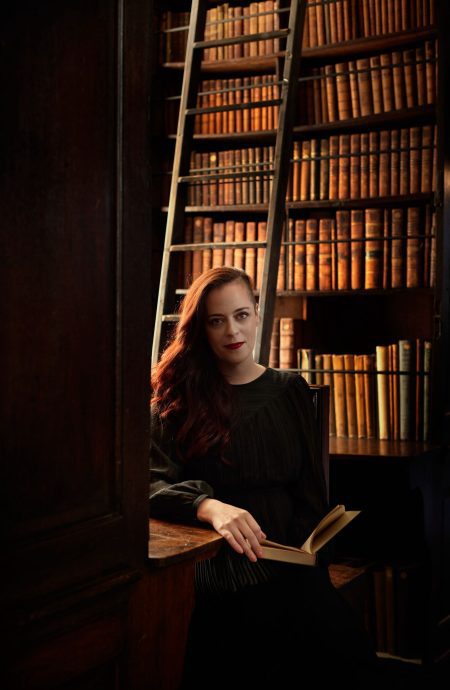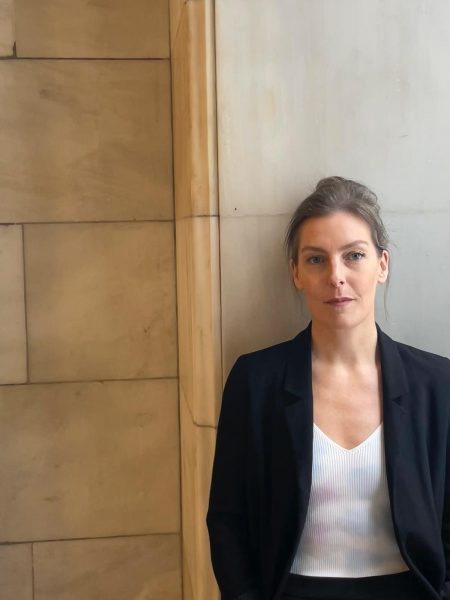as done by Chloe Gahan
I had the privilege of interning with the creative writing organization, Fighting Words Dublin through UCD last year. I gained a lot of great experience and friendships throughout my time there that I am very grateful for. When given the opportunity to interview someone for the magazine, I immediately thought of Sara, she was an excellent mentor and I believe Fighting Words is doing amazing work for the young people of Ireland. So I wanted to shed a little bit more light on them.
Chloe Gahan: It’s wonderful to sit down with you Sara and so great to see you again, I think it’s best if we start by having you give a little overview of yourself and your role as Operations Manager at Fighting Words.
Sara Bennett: My role has evolved over the years. I’ve always been responsible for the volunteer program. I joined Fighting Words when it started 15 years ago. We opened our doors in January 2009. So, I’ve always managed the volunteer program. But we started very small, just as our centre here in Dublin, and so it was managing the volunteers, managing the centre, the space. Liaising with parents for programs in the summertime. And as the organization has grown, my role has grown. So, it’s much more about looking at things on a broader level with regards to policy development, garda vetting for all locations, so working with our partners to support them as they deliver programs and to support volunteers across the country. And of course, the social media piece has only got bigger. Managing the website used to take a couple of minutes here and there and now it’s very much a bigger part of the website. And social media takes up a big chunk of my week. But that’s kind of the fun part. So, it’s fun.
C.G: Yeah. I’ve seen the Instagram lately. It looks fantastic. What is your favourite part of working with Fighting Words?
My favourite part of working with Fighting Words is always, always the people. I’m always delighted to welcome new people who want to volunteer with us, whether that’s joining our regular cohort of people who deliver workshops to our internship program, to our transition year students who do work experience placements with us. We get people from all different backgrounds, all walks of life who come to volunteer with us because you don’t need to have any specialist skills to donate your time and work with Fighting Words. All you really need is a desire to work with children, young people and adults with additional needs and older people in a creative environment to facilitate their creativity, to help them to tell the stories that they want to tell. So that means that pretty much everybody is qualified to do that, and all kinds of people come to us. So, I always enjoy meeting new people, I try to remember their names, and I’m always interested in what motivates people to want to come and help us deliver our program. I’m fiercely protective and love our volunteers. But also, I’m always motivated and inspired to work with the kids. The kids always do or say something that will make you think, make you laugh, and it’s why we do what we do. So, the people, whether that’s the participants or the volunteers who work with them.
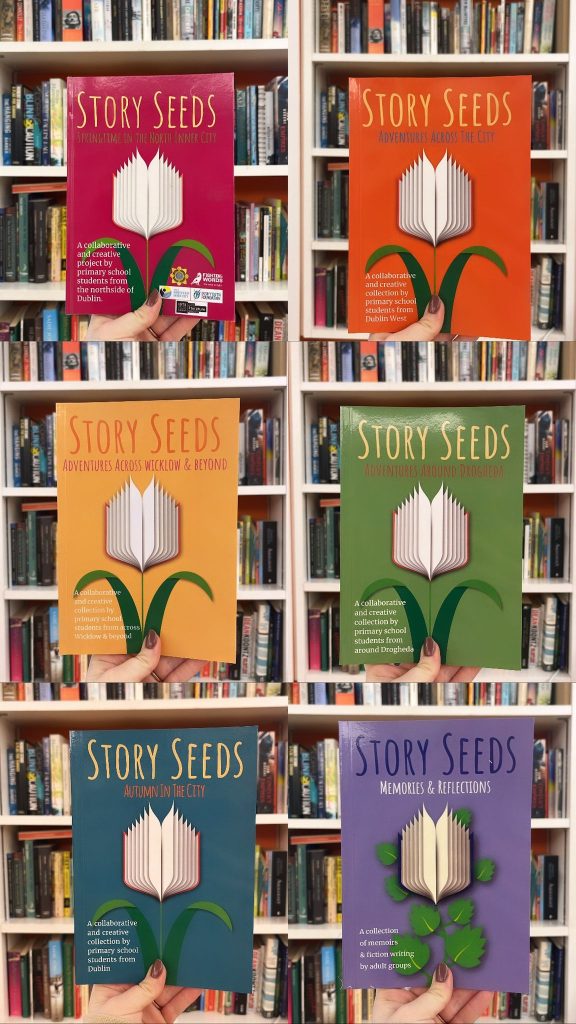
C.G: Excellent. I wanted to ask you about the Story Seeds program because I know that it’s something you and everybody at Fighting Words has been passionate about. Is there anything new that you’re working on or any new parts and places that are in progress?
Sure. Well, Story Seeds has been focused on a couple of different areas. The two main areas are our big cross border project with Fighting Words, Northern Ireland. So, since September, we have been delivering a large program managed by our Development and Outreach Officer Colm Quierny in Ireland, and then in Northern Ireland, Hannah Armstrong. And we’ve been delivering programs with Facilitators in Louth, in Monaghan and in Donegal, as well as in Belfast, in Armagh and we’re working very closely with our sister organization in Northern Ireland and the outputs have just been fantastic.
We’ve also been working in Limerick, so we’ve just completed a series of workshops for secondary schools in the International Rugby Experience in Limerick City. And we’re working on another primary school program in Limerick with our friends at Watchhouse Cross Community Library. So those have been the primary areas. And we also did a lovely project with our team, in Fighting Words Offaly and working with all the schools there.
So, story seeds for people who aren’t familiar with it. The focus is developing stories that are set in and around the communities where the participants live. Students are always inspired by their own community, their own localities, so it’s encouraging them to set a story imagined in the place where they’re where they live. And participants really, really enjoy that format.
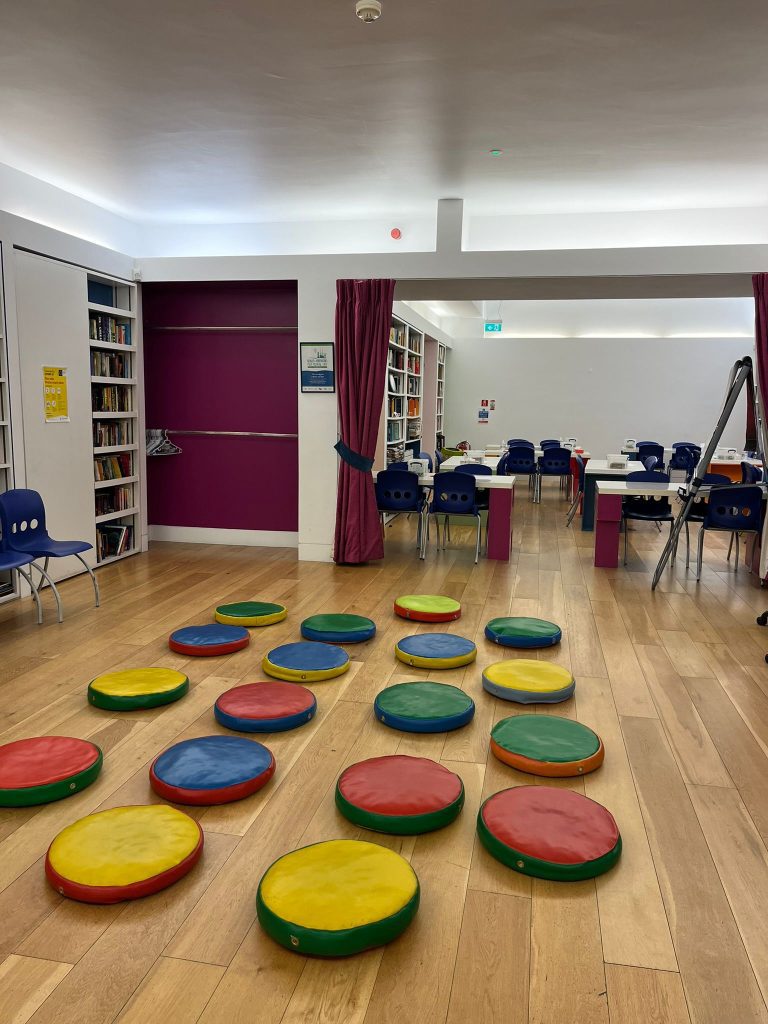
C.G: I obviously had the honour of being a part of Fighting Words. It’s something that I’m very glad to have done and opened a lot of doors for me, such as flying to Canada to work on creative writing in a summer camp. What would you say to people who would like to volunteer and how do they go about doing that?
Okay, well, becoming a volunteer with us is, we try to make it as easy and simple as possible. If you go to the Fighting Words website, you’ll see a section on the homepage that says Get Involved. Click on that, then click on Volunteer and you’ll find all the information about what’s involved in volunteering. And there is a short form you can complete that will come to us so we can contact you about next steps. Once we have your form, we call that the Tell Me More form. Once we have that form, we’ll contact you with the long form application form. We’ll arrange a chat to tell you a little bit more. We’ll arrange for garda vetting. That’s a legal requirement. We do check up with references and then you’ll be invited to come to one of our training sessions. And we run training once a month.
Some of the training sessions take place here at the Fighting Words Centre in Dublin. Some of them take place online, and at training we do a sample workshop, so you get a sense of how workshops are run. We go through our child protection policy and our volunteer policy and answer any questions that people might have. The thing to know as well about volunteering, as you well know, is that it’s totally up to you how often you come in. There’s no minimum commitment when it comes to volunteering at Fighting Words. And certainly, for students and young people that have many different things going on in their lives, it means that you don’t have to give a commitment to say, come in every week for six months or anything like that. We never want it to feel like an obligation or a chore. We want people to be excited about coming in to volunteer with us.
By giving you a username and a password to go on to our website calendar, you’re in control of when you come in. And we think that makes it a really attractive volunteer opportunity as well. For people in Dublin. Our centre is here, just opposite Croke Park, but we also run programs three days a week at the Mermaid Arts Centre in Bray. For anybody who is in South Dublin, if that’s an easier location for you, that’s there as well. But once you’re registered with us, you can help out in any of our locations.
C.G: Why do you think that organizations like Fighting Words, places that really emphasize creative writing, are so important today for young people?
At Fighting Words, we know that not everybody who comes through our doors, and we work with students as young as first class right up through 6th year, so from eight to 17. But we also work with young people in youth groups and work with older people, and we work with adults with additional needs. We know that not everybody is going to go off and become a published author. That’s not why we’re here. If they do, obviously wonderful.
But the thing about Fighting Words is creating a space where people can tell their stories at their own pace and in their own language and everyone has a story to tell. And our facilitators and writing mentors are there to help people to tell their stories. And when somebody who comes to participate in one of our workshops, when you feel like somebody has taken the time to listen to what you have to say to value your story, that’s what builds self-confidence. That’s what builds resilience. And you will take that to other areas of your life when you know that you matter, you’re going to take that with you and do amazing things. It might be in writing and the creative arts; it might be in something else. But that’s why we’re here. We’re here to tell people that they matter, they count and they’re amazing. And that’s really it seems so simple, but it’s given the demand for all of our programs, it’s obviously we’re meeting a need that’s very much there.
C.G: I think that’s a beautiful way to end our conversation, Sara. Thank you so much for taking this time to chat to me, it was so lovely to see you again.
If you’re interested in finding out more about Fighting Words or how to volunteer, they have so much information available on their website www.fightingwords.ie.
